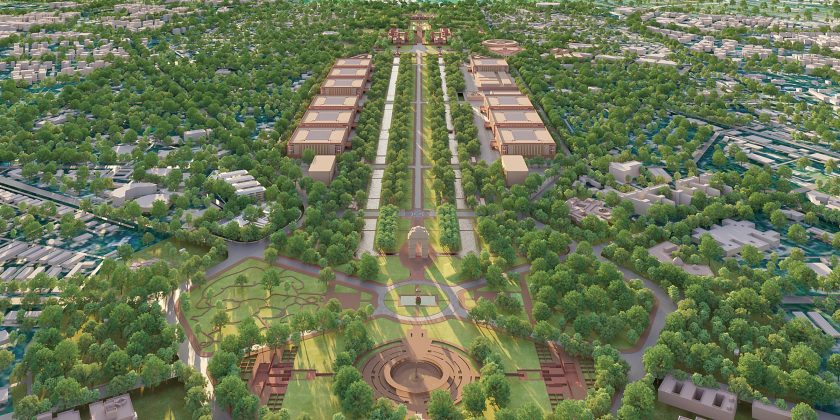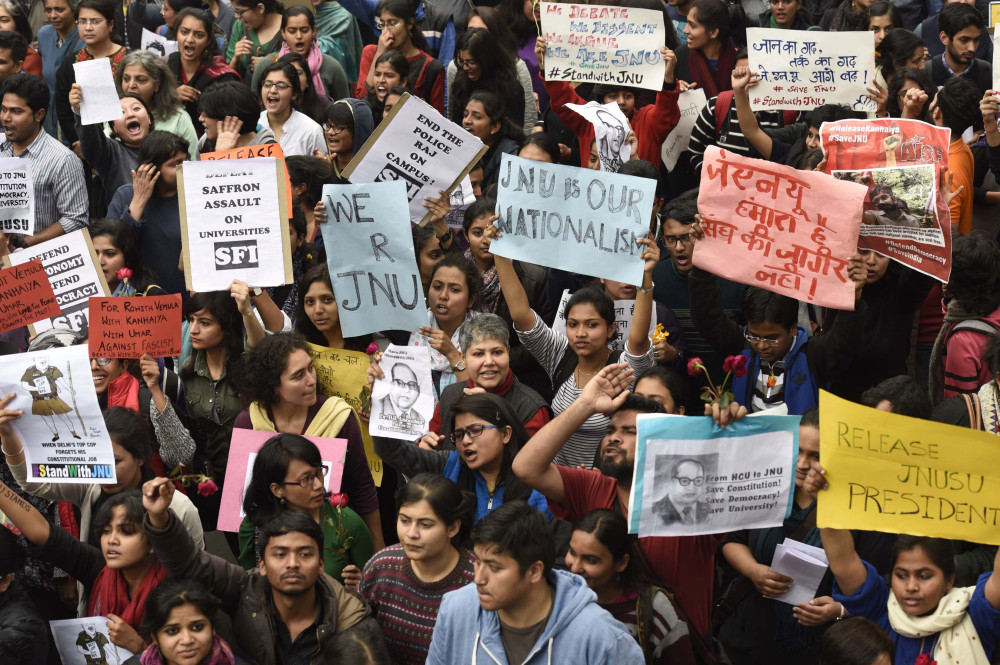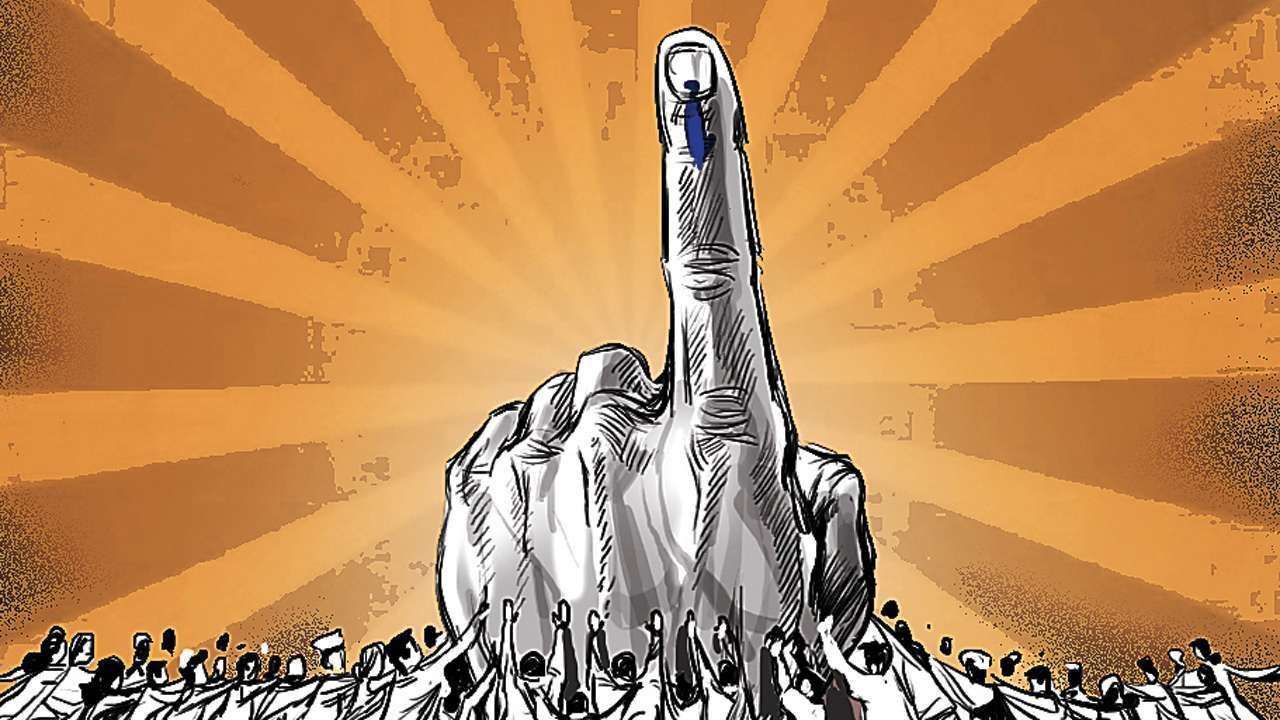Source: DNAIndia
In today’s digital era, where information is at everyone’s fingertips, one thing lacking in cyberspace may be the critical thinking to discriminate between truth and untruth. Access to information does not guarantee critical ability, a skill that needs training, for which a secular liberal education is a prerequisite. Such an education not only broadens perspectives on various socio-political and historical issues, but produces individuals who question oppressive narratives. Perhaps, it is precisely for these reasons that some countries like India, which has seen increasing authoritarianism, witnessed attacks on institutions of higher learning in recent times. These attacks were particularly targeted at institutions that produce a high amount of research and critical learning, especially in the field of liberal arts (subjects like history, languages, philosophy, politics) – fields that specialize in the critical analysis of all aspects of the society, including the state ideology and narrative.
To a common man, liberal arts may seem like some esoteric club of scholars only debating and engaging in ceaseless discourses; but at the level of a nation where ideologies operate and seek hegemony, where some ideologies marginalize minorities more than others, the work of liberal arts and social sciences assume relevance. By looking at the current political situation in India, one needs to see why liberal arts is an important field of study in society.
“The making of the nation is the unmaking of a nation,” rings the words I heard from the late Professor Pandian of Jawaharlal Nehru University, as the project of ‘New India’ envisioned by the incumbent Prime Minister of India ensues. The current political leadership since its rise to power in 2014, has been attempting to link everything about India with Hindutva (an ideology aimed at establishing Hindu hegemony). For those who wonder why such a reimagining of India is problematic, (after-all India is known as the land of Hinduism), there is a caveat to this stereotype. India is not only home to Hinduism but also the birthplace of other religions viz. Buddhism, Jainism and Sikhism; and while 79.8% of the population identify as Hindus according to the Census of 2011, the remaining 20.2% is composed of a substantial number of Muslims, followed by Christians, Sikhs, Buddhists, Jains and followers of folk religion. India’s Constitution also lays down that it is a secular democratic country, providing for different religions to coexist equally. Therefore, imposing Hinduism not only transgresses the Constitution but is an assault on the freedom of citizens belonging to other faiths.

A model view of Delhi’s proposed Central Vista. Source: HCP Design, Planning and Management Pvt Ltd via the Print.
The nation un-doing initiative is evident in the Central Vista Project, aimed at building a new Parliament House and residence of the Prime Minister by dismantling landmark structures like the National Museum, Indira Gandhi National Centre for Arts and Culture and ten other buildings. Ideologically driven and infused with a religious symbolism, the Central Vista Project seeks to recast India as a nation based on ‘Indian’ values, where the word ‘Indian’ is synonymous to ‘Hindu’. On the superficial level, it appears as a move to detach India from the remnants of the colonial past but unwittingly, its true nature is an onslaught against the secular democratic nature of the country and a blatant move to rewrite history in a way that imposes majoritan hegemony, catering to the vagaries of those in power.
The intriguing question here then, is how and why the above discussion is linked to the importance of liberal arts in society. Perhaps, to make more sense into this deliberation, one needs to understand that ideologies are based on claims of truth, often appropriated from historical events. It is usually historians and social scientists who expose the untruth and problematize the veracity of such claims, because providing an objective truth is the expertise of their trade. What this implies is that society needs experts in liberal arts and social sciences to repugn hegemonizing tendencies that are oppressive and violent.
But to the dismay of many intellectuals (individuals engaged in critical thinking and research), today’s education system has been reduced to acquiring skills for earning livelihood and does not go beyond imparting professional knowledge. Society itself seems to have succumbed to this mindset of equating education to acquisition of skills, evident in the race for technical education and treatment meted out to more ‘academic fields.’ Worse, it is seen in the blind and fervent support of atavistic right-wing politicians, of which India is a prime example.
Indian society in general, has never put much value on liberal arts or the social sciences. This is evident from how students’ futures are decided by their parents who send their children to engineering or medical fields irregardless of the interests and talents of their children. This is so because a professional/technical degree is perceived as better and of a higher status than a degree in social sciences or liberal arts, since it promises a better income. There is also a gross misperception that liberal arts students are in their fields due to bad grades which disqualify them from technical fields, thus signifying them as somewhat of a failure. Moreover, in a country which expects professional success and a stable career by the end of one’s twenties, pursuing a PhD in the thirties is a disdainful waste of tax-payers money where people hurl slurs like ‘uncles and aunties’ on research scholars who are seen as uselessly whiling away time.

Students, professors and members of the CPI party staging a protest for the release of arrested student leader at New Delhi in 2016. (Source: Hindustan Times/ photo by Sanjeev Verma, via Getty Images)
The predicament of these fields of studies in India has further deteriorated because of its current government, which has been striving to clamp down voices of dissent and undermine liberal arts, because critique from the intellectuals threaten its hegemony and credibility. There have been meditated attacks on major universities in Delhi, India’s capital, where voices of dissent are being stifled through government tyranny since 2016. One of the universities attacked in Delhi, Jawaharlal Nehru University, is not only renowned for fostering free thinking and nurturing research, but also for its student activism. The pro-government media also disparaged the university’s reputation by labelling it as ‘anti-national’. What needs to be noted is that in most universities, it is students with a background in liberal arts and social sciences, who actively engage in debates on social issues or political discourses, organize and participate in protests and stand against what they see as injustice, even if that includes standing up against state violence. No wonder the state sees the liberal arts and social sciences as a threat to its hegemony.
Arrest of intellectuals like Hiren Gohain, student protestors under sedition charges or the UAPA (Unlawful Activities Prevention Act) and several intellectuals and activists in the last 5 years, can also be seen as part of the larger attack on fields that counteract state ideology. Equally terrifying is the power of ‘labels’ that the government and its media outlets have conferred on left-leaning and other secular intellectuals to discredit them; branding them as traitors, ‘urban naxals’ (derogatory term derived from the naxal movement, a militant Communist uprising in India), and tukde-tukde gang (implies those who break up the nation). The demeaning of intellectuals also manipulates public opinion to see their researches as useless feats, and scorn their field of studies as engaged only in ‘defaming’ the government, a powerful propaganda where the government emerges as the only channel of truth.
Instead, many fail to see that liberal arts and social sciences often give voice to the voiceless and the unheard, are at the forefront of fighting for justice, and often bring the government and other institutions to accountability. This is not to say people outside these fields of studies are incapable of doing so, but that these fields specialize in social issues, and are trained to study them, ensuring validity of their opinions as experts in the area. In fact, if not for intellectuals and scholars in these fields, much of the inequalities, oppression and marginalization in communities would go unnoticed. Nor would atrocities committed by the state or majoritan communities, or injustice of any sort be questioned and brought to light. Thus, they produce knowledge that enlightens the people and make them socially and politically aware.
Human beings live in and not apart from society; therefore, questions about justice, peace, freedom, equality, and the like are just as important. Lack of critical thinkers in the society, and suppression of such people can lead to an unquestioning rule of tyranny where only one viewpoint matters. When there is hegemony of an ideology, the minority and the marginalized disappear, being usurped into the majority. This is why society needs intellectuals, because they provide counter-narratives and resist authoritarianism. As liberal arts and social sciences which cultivate critical thinking and nurture intellectuals lose popularity, there is danger of becoming Hitler’s Germany, Mussolini’s Italy or Imperial Japan, where a single ideology was disseminated.
What such a society forebodes is an oppressive existence, devoid of colour; mechanical life churning money for the economy, where minority voices are repressed, and harmony, freedom and liberty are a privilege of the few. A state that is like a whitewashed tomb, superficially well from the outside, but festering on the inside.
Indians need to take heed before independent voices disappear and only the dominant remains. ‘Now’ is a good time to support incarcerated intellectuals before even those who speak, are no more. And more than ever, the felt need for voices from liberal arts and social sciences today, is critical to rectify distortions and disseminate the truth.
There is then, no doubt, that liberal arts and social sciences play an important role as bulwarks against authoritarianism and jingoist rhetoric of political extremists. Given this, the question is, is it still wise to write off liberal arts and social sciences as useless?
- Race Against Time: South Korea’s Role in Mitigating Climate Change - September 8, 2021
- Countering Oppressive Ideologies: Reasons Why India Cannot Write off Liberal Arts and the Social Sciences - July 21, 2021
- Is there a Silver Lining in the Plight of Multi-Ethnic Children Against Bullying in Korea? - May 7, 2021






